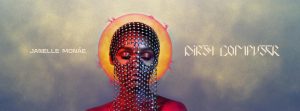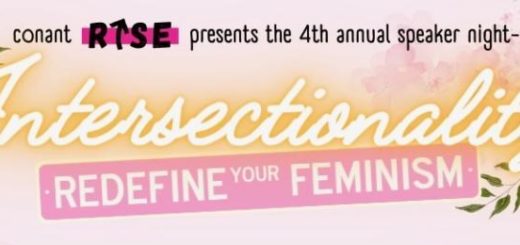Janelle Monae’s ‘Dirty Computer’ is woke and fun
 Glide Magazine, fair use
Glide Magazine, fair use “Dirty Computer” is Janelle Monae’s third studio album.
“Dirty Computer” is an album of contradictions. But that’s exactly what makes it work so well.
Many of the songs sound carefree and summery, yet Janelle Monae’s lyrics are peppered with bold political statements. The album’s concept is futuristic but takes musical references from the likes of Prince and early-2000s Gwen Stefani. The music feels confessional, never shying away from Monae’s identity “as a queer black woman in America,” but it is also universal.
Put simply, Monae’s latest studio album is an ethereal celebration of independence and individuality.
The album’s release is coupled with a 43-minute “emotion picture,” which interweaves the album’s strongest tracks with acted scenes that help flesh out the conceptual aspect of the music. The story is set in the future, where Jane (Monae) is a nonconformist labelled as a “dirty computer.” She is sent to a facility to be “cleaned” of her memories, and as she tries to resist, we are shown snippets of her past life. Will Jane escape with her memories preserved? Take your guess.
Cliche-ridden dystopia aside, the “emotion picture” is so beautifully shot that it’s still worth a watch; plus, the context it provides is helpful to your listening experience.
Monae’s lyrics shine throughout much of “Dirty Computer.” In “Crazy Classic Life,” one of the album’s poppiest songs, Monae delivers typical themes of being young and wanting to party, with more meaningful discussion of freedom with lines like “I’m not America’s nightmare/ I am the American Dream,” a reference to Malcolm X. She also includes portions of speeches from Dr. Martin Luther King Jr. and Reverend Sean McMillan in “Crazy Classic Life” and “Americans” that emphasize solidarity and equality.
Monae also isn’t afraid to be a little cheeky with her lyrics. For instance, the refrain “Take a byte/ help yourself” in “Take a Byte” has a double meaning as both an innuendo and a reference to the album’s story where Jane’s memory is wiped. Other lyrics are even more vulgar or controversial, such as when Monae declares, “If you try to grab this pussy cat, this pussy grabs you back” in “I Got the Juice,” but ultimately these bold lyrics are important for listeners to hear.
If you find yourself uncomfortable by Monae’s words, it’s worth considering if these lyrics are actually more “offensive” than what many mainstream male artists (such as say, Eminem) produce, or if you are just unaccustomed to hearing a confident queer black woman discuss taboo topics like sexuality. Representation matters, and Monae is using her platform to be authentically react to our current political climate, which is daring and commendable.
Musically, the album manages to pull off a variety of styles. Monae’s homage to Prince in “Make Me Feel” is almost uncanny (Prince was a major inspiration to Monae and collaborated with her on parts of the album before his death) as she truly nails Prince’s high-pitched voice in the chorus and borrows from the synth beat of “Kiss.” Monae delivers the punchier songs like “Django Jane” and “I Got the Juice” with just the right level of aggression. And she switches things up yet again in “Pynk” (my personal favorite track on the album), which features synth-pop artist Grimes. The song is dreamy and pretty, showing a more feminine aspect of Monae’s identity.
Ultimately, “Dirty Computer” is a cohesive and well-written album. Monae proves to be a talented and creative artist who is not afraid to take risks. Her latest album is uplifting, empowering, and fun–perfect for your summer playlist needs and beyond.




Recent Comments